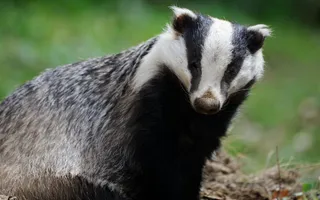Read our interview with Laura Mulholland, ecologist, to understand more about what her work entails.
What do you do at work on an average day?
My role is ecologist which is basically looking after the wildlife and habits along the canals. One of the big things I'm looking at now is how we might alter our mowing regime, so we can perhaps leave wildflowers in place where it's appropriate. When COVID-19 happened, we reduced how much we cut the grass and lots of flowers popped up, which people loved. However, doing this also allows plants that can maybe get quite big to grow and flow over on to the towpath, which causes an obstruction and stops people from walking! So, it's a balance sometimes.
What do you like about working in this role?
I'm here to make sure that the wildlife and habitats on the canal are protected and wherever possible, enhanced, and improved, and as an ecologist that's the pinnacle of what you want to do. Essentially, I'm doing my dream job and I'm very fortunate.
What challenges do you face in your job?
A challenge for scientists like me is to balance the nice things you want to happen with the necessary things that you need to do. So, for example standing weeds are really good for nesting warblers to build their nests in, but they make a bit of a barrier between walking along the towpath and seeing the canal, which isn't good for people visiting! Also, sometimes, you might not be able to make a perfect decision, but you have to use your judgment to make the best decision you can.
What skills do you think you need to do this job?
I've always been really interested in wildlife and poking around in ponds and looking in rivers, and in school science was one of my strongest subjects, and I even thought about being a vet at one point. However, I didn't realise until when I did my A-levels that ecology was a part of science that I was really interested in. Also, whilst being a scientist and knowing about how to survey for animals is important, other skills such as being able to write a well written report or having good communication skills is important too. Finally, as there are lots of factors I have to think about, being assertive with your own judgment is key!
What is a typical career path for this role?
In my profession ecology can normally go one of two ways – you can either go down the route that I'm in, looking more at conservation and working with wildlife trusts, which is more about protecting and improving environments. Or you can become a consultant which is more around enabling development to take place around understanding ecology.
What did you do in your past that helped you to get this job?
I've always been really interested in wildlife and poking around in ponds and looking in rivers then studied environmental science at university. After that I went and did a voluntary training scheme at a wildlife trust, which is what showed be what being an ecologist is all about. I am also an expert on specific animals and have a bat and great crested newt licence!
Do you think this job will change in the future? If so how?
There's a new system coming called biodiversity net gain, which means that if for example you build a new housing estate, you have to gain more habitat than would have been there before. I don't know how it'll end up working, but it'll be really interesting to potentially see how we can support it by improving grassland or towpaths that we look after. Obviously, climate change also is going to lead to us taking more action, because new temperatures have led to animals breeding and migrating at different times, and using our waterways at different times than usual, so perhaps we'll need to manage things differently.





